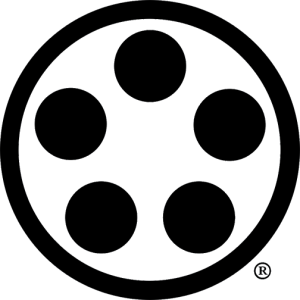No Gaps
I am currently sitting on a plane from Tōkyō to Dallas writing this article about an experience I had while boarding this morning. While standing in line to board, behind me was an American Medical Doctor. How did I know his profession, you may astutely ask? He was purposefully wearing his dark purple medical scrubs so all could see what his calling was. After presenting our boarding passes, we made our way toward the jet bridge. In front of me provided a choice: the escalator to the left, and the stairs to the right. Most definitely not a life-changing decision by any means. Attempting to maintain a modicum of health and realizing that I would sit for the next twelve hours, I chose the stairs. The Doctor chose the escalator. About a third of the way down the stairs as he was about to pass me, I jokingly said, “Hey Doc, shouldn’t you be taking the stairs?” He retorted with a snort of derision, “Mind of your own damned business,” and proceeded to rush past not wanting to interact further.
Now, this exchange, which was meant to be a bit funny, provides me with food for thought. Yes, I understand this gentleman might be having a bad day and did not want to deal with the world. I realize he may have had his mind full as he raced from an emergency room in one country to an emergency room in another. But, deeper than that, I saw a gap, a place in between what is said and what is done. How often have you heard from your doctor to lose weight, quit smoking, walk more, improve your diet, cut out sugar, do some weight-bearing exercises, or any other of a plethora of lifestyle improvement choices designed to promote healthful living? Here was an opportunity, as a physician, to act in the manner that many of his vocation like to profess; to take the stairs instead of the elevator, to put down the cigarette, to choose water over wine. Further, instead of just laughing it off with just a smile, the hypocrisy of his actions cut to the quick and his response was that of someone who got caught with their hand in the cookie jar.
The Japanese have a word for this: suki (隙), a momentary gap in concentration where one can be attacked. It is a separation between what we see and what exists. It is where one’s opponent or counterpart, whether armed with a gun, a knife, or a briefcase, can seamlessly place their technique, their argument, or their weapon. It is a fundamental error for a soldier, policeman, lawyer, or negotiator, and it is just that – a gap; a space in place and time, that is undefended. That gap can be getting caught momentarily with the sun in your eyes, trying to remember if you turned off the stove, or brought the cat in for the night. However, in moments of life and death, or less melodramatically, in winning and losing any interaction, whether a court decision, a business deal, a street fight, or even more mundanely just getting your kid to do their homework, that gap can and will be exploited.
What presented me with a more interesting observation was not merely getting distracted by a warm spot in the room on a cold day but a gap in what one says and what one does, on what one is and what one purports to be. It is the essence of false virtue and dissimulation. How can you trust the doctor that tells you to quit smoking when you see him fifteen minutes later in the parking lot lighting up? How can you trust the doctor who tells you to eat better and then you see her stuffing her face with a Big Mac and an extra-large fries? How can you trust anyone who goes by the maxim, “Do what I say, not what I do?”
Had this gentleman not wanted to be held to such a standard, he should not have worn the garb of an M.D. He chose to wear that attire on a long-haul international flight, in full expectation of everyone calling him by the title “Doctor” and not “Mister” with all the rights and privileges of such a distinguished appellation. Yet, with such a title comes an obligation to be the person who earned it instead of just some guy who merges into the background. A Doctor, as a learned person, is, and must be, held to a different standard – a higher standard; similar to the Judge, the General, and the Senator. The moment they change from jeans and a tee-shirt (an everyman) to the Robe, the Scrubs, the Uniform with the Stars on the shoulder-boards, or the Suit, they become more than just the person – they become the role of the outfit they are wearing inclusive of all the expectations that society has of that role. They become more than just a man or woman wearing a uniform, they become that uniform.
Now, what does this have to do with us? First, we are constantly being watched which means we are always being judged. If we comport ourselves with dignity and virtue, it reaffirms to those around us that we are who we say we are. Yet, if we conduct ourselves with a lack of elegance, whether in an undignified or uncouth manner, possessing a sharp and insensitive tongue, or simply forgetting simple but vital phrases such as “Please”, “Thank you”, “Excuse Me”, “I’m Sorry”, and “How may I help?” we, as before, reaffirm that we are who we act, despite what we may say. Next, the moment we put on our keikō-gi, especially a black hakama (and more particularly an indigo uwagi), we become that uniform. Gone is Bob Jones; in his place is Mr. Jones, anideshi of the dōjō. Gone is Mr. Johnson; what is left is Johnson-Sensei, tasked with obligations to mold the body and spirit of the deshi as well as instruct them in the fundamental teachings of our Arts. This requires a level of dignity and decorum that even the rest of the yūdanshakai need not possess. More than just a title, the personal grace, skill, and poise will add polish and luster to the role in which they serve.
Seeing a senior yūdansha forgetting basic reishiki and etiquette or worse choosing to purposefully ignore it because they are just too senior to be bound by such pedestrian trivialities is anathema to our Traditions. That person shouts to the world and whoever is around to listen, “I am better than my art, my ryū, my sensei, and my deshi. The rules do not apply to me.” That, my friends, is a particularly pernicious gap with effects that erode the trust of all those observing.
Existing within our Traditions is unbelievably challenging. They require a level of personal accountability and introspection that is quite intense, not for days and weeks, but for years and decades – for a lifetime. They are more than a bag of physical techniques. They are more than just cutting, throwing, breathing, walking, or sitting; more than Shohatsutō or Ude-osae. They are a way of living, a method that pervades the inmost recesses to improve the Core You, and to forge that thing into something that each day, hopefully, has one less gap than the day before. We must be cautious and deliberate in how we act, talk, and listen and how those around us perceive us. Are we acting in a manner consistent with what we say or is there a vast gap, big enough for a truck to drive through, in what we say versus what we do?
In the interests of full disclosure, I am not very good at this, despite continuing efforts. However, I am painfully conscious of my foibles and hopefully, after seeing our wayward Doctor, I will be able to remove just one more gap from my personality in my quest to become just slightly a better person tomorrow than I am today.
The End.


